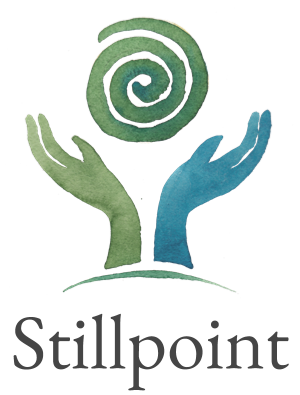We Have One Job
By Rick Sforza,
The Art of Spiritual Direction Faculty, Year 1
Photo by Rick Sforza
During my daily walk, I saw a maintenance hole cover in the street and wondered why the workers failed to replace it, “correctly” aligning the double yellow lines. My thought was something like, “You had one job!” While it provoked the more nagging tendencies of my obsessive-compulsive nature, it seemed like a relatively simple task: line it up and contribute to the continuity of east-to-west travel in one unbroken line. It bothered me because, unlike the random wonky picture frame hanging in a public space, I could not straighten it and ease my awkward penchant in a vain effort to relax the chaos in a tiny corner of the world. But that’s an issue better saved for a spiritual direction session.
As I went about the following days and weeks, I couldn’t unsee this image andwould check every maintenance hole cover I’d pass, finding many shared a similar fate. It wasn’t until I saw a crew actively setting up to remove a cover that I discovered most of these covers weigh about 250 pounds and require a mechanical means to remove them: a winch and a crew of three people. It’s not a job for one person. The workers descended into a vault and spent some time working there. It’s labor-intensive, requiring strict attention, and can be an exhausting job. And it’s an under-appreciated task that keeps all the services we might take for granted up and running. These vaults contain everything we rely on in our communities, from sewer and gas to electricity, cable, or water. And the covers merely serve to protect all these vital services.
The world is dangerous, messy, chaotic, and weird. Any number of us desperately want things to fit into a neatly stacked, prearranged, and strictly prescribed order of affairs. At the risk of anthropomorphizing the subject, whether the painted lines of our maintenance hole cover line up or not makes very little difference to the work inside the vault. Or, in our case, the vault of our souls. And amidst our traumas and personal crises, we deal with war, conflicts, systemic racism, misogyny, homophobia, and transphobia. As spiritual directors, those we companion may come to us carrying all or some of these societal wounds. Self-care and soul work are essential for our well-being and are critical to spiritual directors, deep listeners, and contemplative spirituality. We must attend to our souls before sitting with another person on their spiritual journey. And it’s not a job for one person. Thich Nhat Hanh says,
“Deep listening, compassionate listening is not listening with the purpose of analyzing or even uncovering what has happened in the past. You listen first of all in order to give the other person relief, a chance to speak out, to feel that someone finally understands him or her. Deep listening is the kind of listening that helps us to keep compassion alive while the other speaks, which may be for half an hour or forty-five minutes. During this time, you have in mind only one idea, one desire: to listen in order to give the other person the chance to speak out and suffer less. This is your only purpose. Other things, like analyzing understanding the past, can be a by-product of this work. But first of all, listen with compassion. Compassion.”
The state of the world has torn the cover off and left our soul vaults wide open and begging for care, with many of us struggling to make sense of it. We can start by being a compassionate witness to our wounds. Father Greg Boyle suggests,
“If we don’t welcome our wounds, we may well be tempted to despise the wounded. We are all in need of healing; that’s one of the things that joins us together as members of the human family.”
So, we must be gentle and compassionate and listen as we begin our journey into the vault of our soul and begin the work of healing. And remember, when we replace the cover, it makes very little difference to the work inside the vault. But if you want to make the lines match when you return it...that’s okay, too. I still straighten crooked picture frames in public places. But that’s an issue better saved for a spiritual direction session.
Rick
Rick Sforza is a spiritual director and graduate of Stillpoint's The Art of Spiritual Direction and graduate of Compassion-Based Soul Care: Internal Family Systems as a Model for Spiritual Companions. He worked as a photojournalist for 31 years. During that time, he discovered deeply listening to a subject would help put them at ease and yield better photos supporting his driving philosophy of photography, "every person, place, and thing will reveal the essence of who they are in a single moment." Rick spent 24 years as a military photographer, where he was the mental health coordinator for Airmen returning from the wars in Iraq and Afghanistan. Here, he realized the potential for healing by listening to those searching for a connection with the divine. He is actively involved with Stillpoint alum Suzanne Edwards-Acton's online affinity group "My Work To Do." The group is designed to "help white people build stamina for discussing racism, systemic injustice, racial healing, reconciliation, and justice in their everyday lives." He practices yoga, and photography, enjoys nature, a good road trip, and plays guitar… "rather badly."


